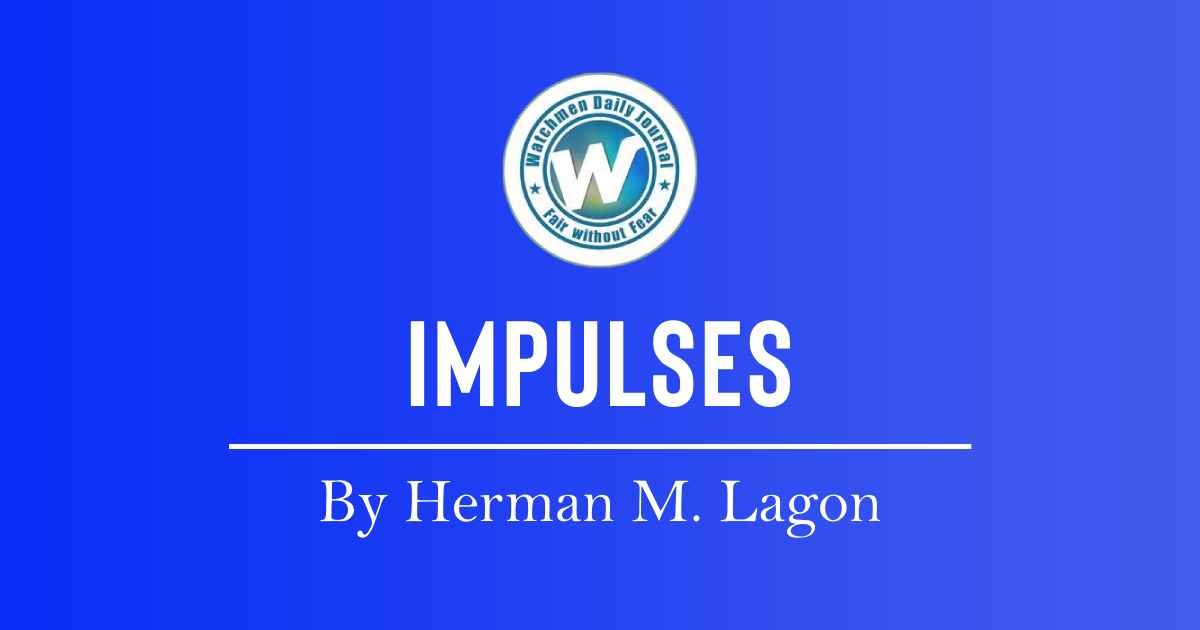 By Herman M. Lagon
By Herman M. Lagon
In late 2016, I was privileged to attend the World Educational Leadership Summit at the Kallang Theater in Singapore. Dr. Eric Mazur, the esteemed dean of the Physics Department at Harvard University, said these immortal words: “Failure to innovate is to become obsolete, irrelevant and useless.” As we think about the future of work, his message feels even more urgent.
Imagine this: By 2030, 85 percent of the workforce will be obsolete. A collaboration between Dell Technologies and the Institute for the Future has produced this alarming prognosis. While it resembles an event from a science fiction film, this imminent reality cannot be denied. While generating new occupations, each sector is enduring a technological revolution that renders certain ones obsolete.
We are presently residing in an age of innovations beyond comparison. It was unfathomable a decade ago that algorithms, AI-powered customer service and autonomous vehicles would be performing such tasks today. The occupation of professional drivers, for instance, is threatened. Autonomous cars may one day supplant human chauffeurs, a feat that other professions may also experience. The potential ramifications are substantial, as millions of jobs may vanish within the following decade.
Nevertheless, automation is not solely revolutionizing many industries; programming is also experiencing a significant shift. Squarespace and WordPress, among others, have rendered developing a website so intuitive that virtually anyone can do it. Effective programming languages and tools diminish the necessity for labor-intensive manual coding. This trend also exhibits no indications of decelerating. Opinion leaders, surveyors, assessors, tellers, call center agents, and parking meter attendants are among the positions approaching complete automation.
If this seems alarming, remember that job displacement due to technological advancement is not new. The agricultural sector saw an 80 percent drop in workers over the last 60 years, and manufacturing also lost 60 percent of its workforce share. Society adapts, creating new jobs and industries. We moved from agricultural to industrial to knowledge economies and are now entering the information or network economy. This transition creates opportunities as much as it poses challenges.
For business, education and government leaders, this shift is not something to fear but to leverage. The growing trends of artificial intelligence, machine learning and cloud computing offer incredible opportunities. These innovations can spawn new industries and career paths we have yet to imagine. Leaders and administrators may then create jobs and generate profit, enabling reinvestment into new ventures.
So, how do we prepare? First, staying ahead of market trends is crucial. Understanding and leveraging new technologies can give businesses or advocacy groups a competitive edge. Second, fostering a learning or growth mindset is essential. The ability to continuously learn and adapt is invaluable in an era when knowledge quickly becomes outdated.
It is not enough to learn — we must also teach. Sharing knowledge across industries can spark innovations and create new business opportunities. Leveraging existing technologies, whenever possible, can strengthen our businesses and apostolates. It is about integrating new methodologies and maintaining an agile approach to industry shifts.
Education and employment will eventually integrate more seamlessly. The norm will be learning on the job, which will be enabled by augmented reality and real-time data. Employees will no longer need to relocate to acquire new skills. Conversely, they will concurrently develop and implement novel insights, boosting their efficiency and flexibility.
Innovation is vital to society’s advancement. Dr. Mazur underscored the stark reality: Either innovate or risk obsolescence. Individuals who embrace and implement innovation creatively and are perpetual learners will shape the future of work. Adopting this mentality guarantees survival and prosperity in a constantly changing labor market.
Although uncertainty is inevitable, it must not overwhelm us. On the contrary, it should inspire us to enhance our level of preparation. Acquiring proficiency in digital literacy, ethical business conduct and international operations can establish a strong foundation for effectively navigating forthcoming uncertainties. It is evident that innovation and adaptability will be regarded as two of the most essential competencies in the future.
Given the future’s unpredictability, we must preserve our adaptability, curiosity and originality. Even though many professions that will exist in 2030 have yet to materialize, measures are being taken to lay the foundation for these positions. Fostering a culture that emphasizes ongoing education and welcomes transformation can guarantee preparedness for proactively anticipating and influencing future developments.
***
Doc H fondly describes himself as a “student of and for life” who, like many others, aspires to a life-giving and why-driven world that is grounded in social justice and the pursuit of happiness. His views herewith do not necessarily reflect those of the institutions he is employed or connected with./WDJ
